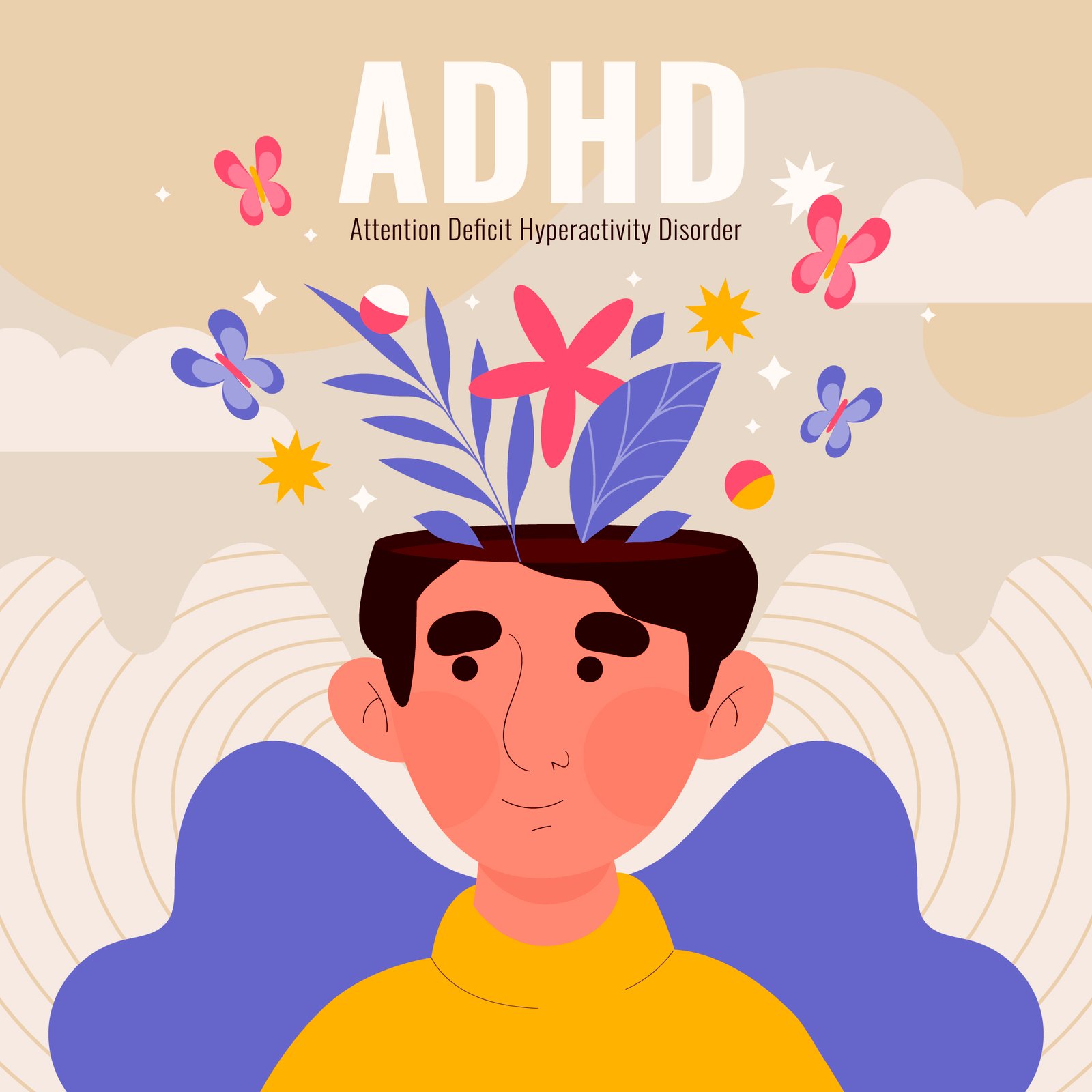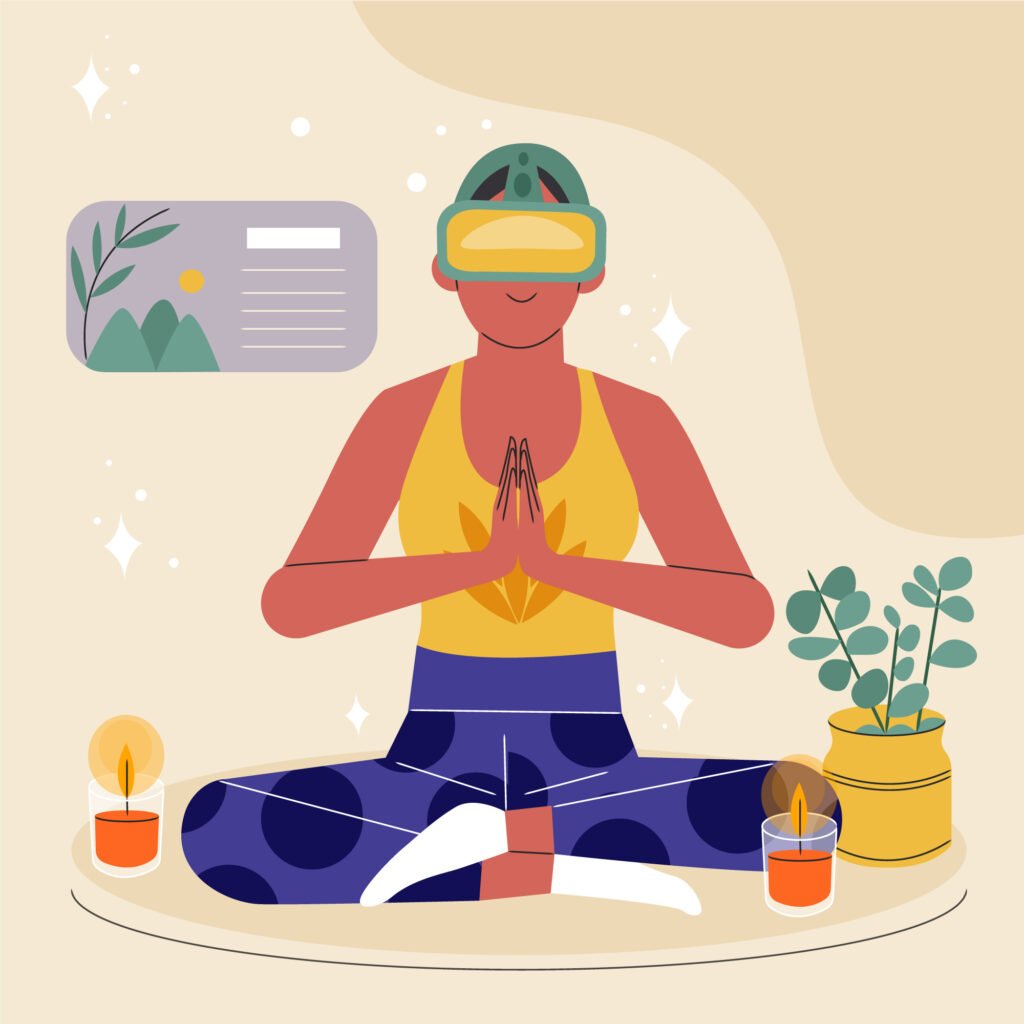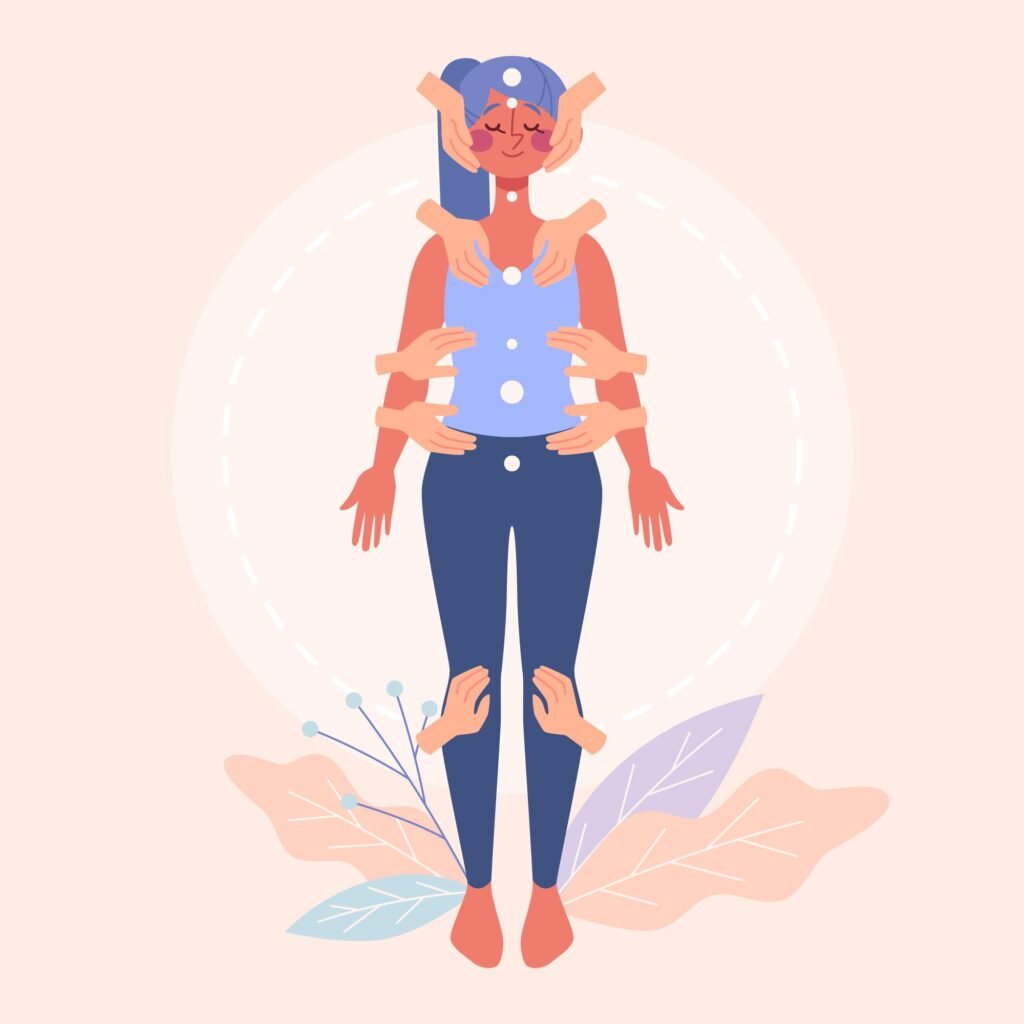Do I Have ADHD… or Am I Just Distracted? It’s a question more adults are asking themselves these days: Is this Adult ADHD, or am I just overwhelmed? With the rise of awareness around mental health, terms like “ADHD” often slip into everyday conversations. But confusion arises when we mistake stress, anxiety, burnout, or even …
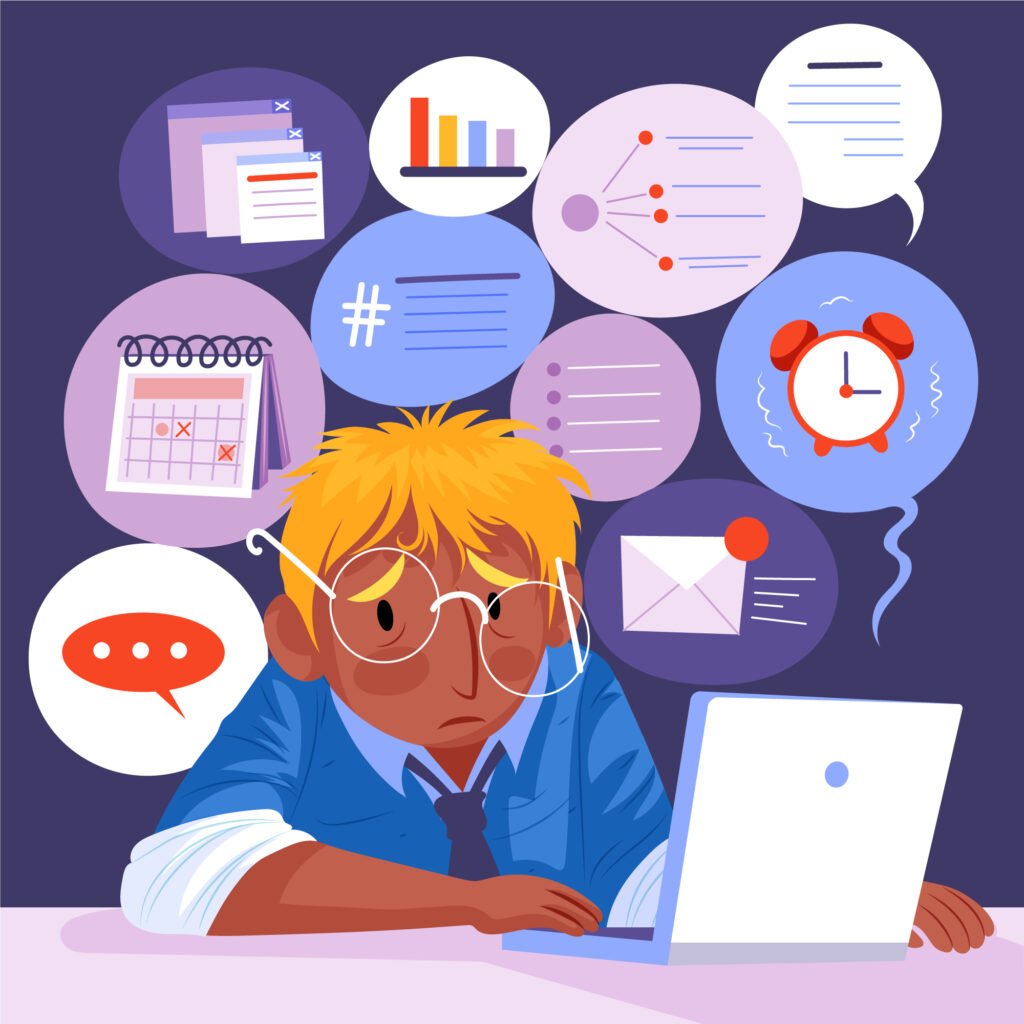
Do I Have ADHD… or Am I Just Distracted?
It’s a question more adults are asking themselves these days: Is this Adult ADHD, or am I just overwhelmed? With the rise of awareness around mental health, terms like “ADHD” often slip into everyday conversations. But confusion arises when we mistake stress, anxiety, burnout, or even poor lifestyle habits for ADHD.
The truth is simple: being busy, daydreaming, or procrastinating doesn’t automatically mean you have ADHD. These can be symptoms of other challenges in your environment or routine. And misinterpretation can do more harm than good.
Myths and Misinterpretations Around Adult ADHD
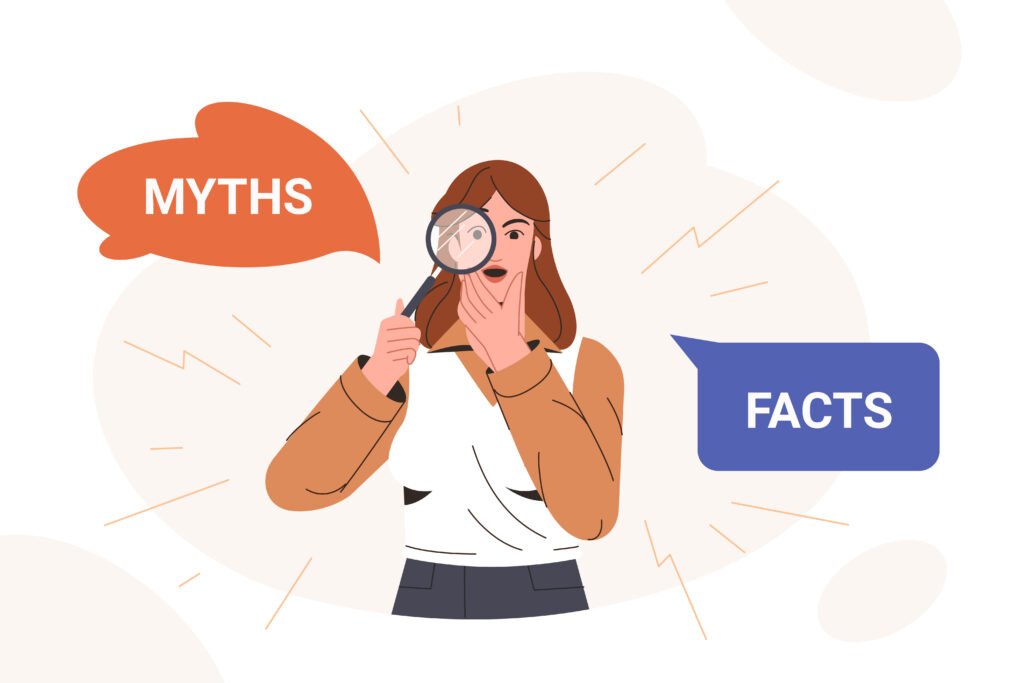
Let’s clear up some of the most common misconceptions:
- Being busy = ADHD ❌
Many of us juggle multiple responsibilities. That doesn’t always point to ADHD, it might just mean your schedule needs restructuring. - Daydreaming = ADHD ❌
Everyone’s mind wanders. That’s not automatically a clinical sign. - Procrastination = ADHD ❌
Putting off tasks can also be linked to perfectionism, stress, or lack of motivation, not necessarily ADHD.
While ADHD can involve these behaviors, the condition goes beyond occasional distraction.
How Adult ADHD Shows Up Differently
ADHD isn’t just a childhood diagnosis that disappears with age. Adults often experience it in different ways, including:
- Chronic disorganization and forgetfulness
- Impulsive decision-making
- Struggling with prioritization and deadlines
- Intense emotional swings that affect work and relationships
Unlike children, adults may not show “hyperactivity” in the classic sense, but the impact on productivity, emotional health, and self-esteem is very real.
Diagnosis: More Than Just a Label
“Small acts of self-kindness build the strongest foundations.”
ADHD in adults is diagnosed by looking at patterns across multiple life domains – work, home, and relationships. One rough day or a stressful period doesn’t define ADHD. What matters is whether the symptoms are consistent and impairing across different areas of life.
The goal of a diagnosis isn’t to stick a label, but to help you make sense of your struggles and access the right support.
Working with Adult ADHD: More Than Medication
Medication can be very effective in easing physical symptoms like focus or impulsivity. But it’s not the entire solution.
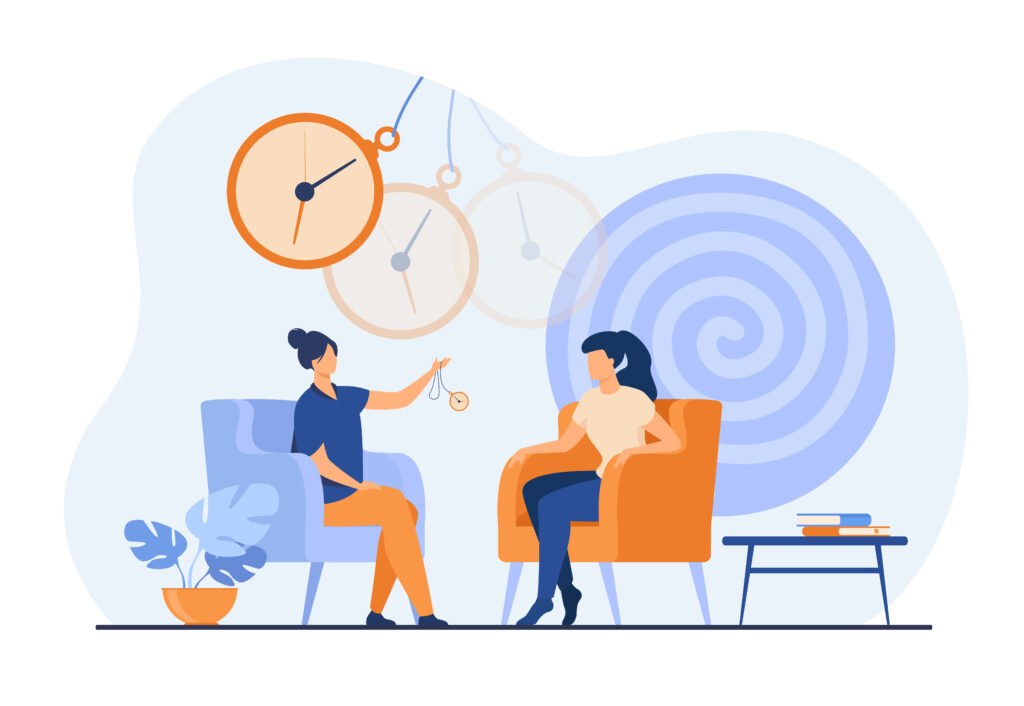
- Therapy helps you build healthier coping strategies.
- Lifestyle changes, better sleep, movement, nutrition, make a huge difference.
- Conscious and consistent effort helps create a sustainable routine, beyond quick fixes.
In short: medicine supports the brain, therapy and habits reshape daily life.
A Gentle Reminder
- Not every distraction = ADHD.
- Diagnosis should help, not harm.
- Seek clarity, not quick labels.
POSTER FOR SUPPORT
Download your free printable poster here:
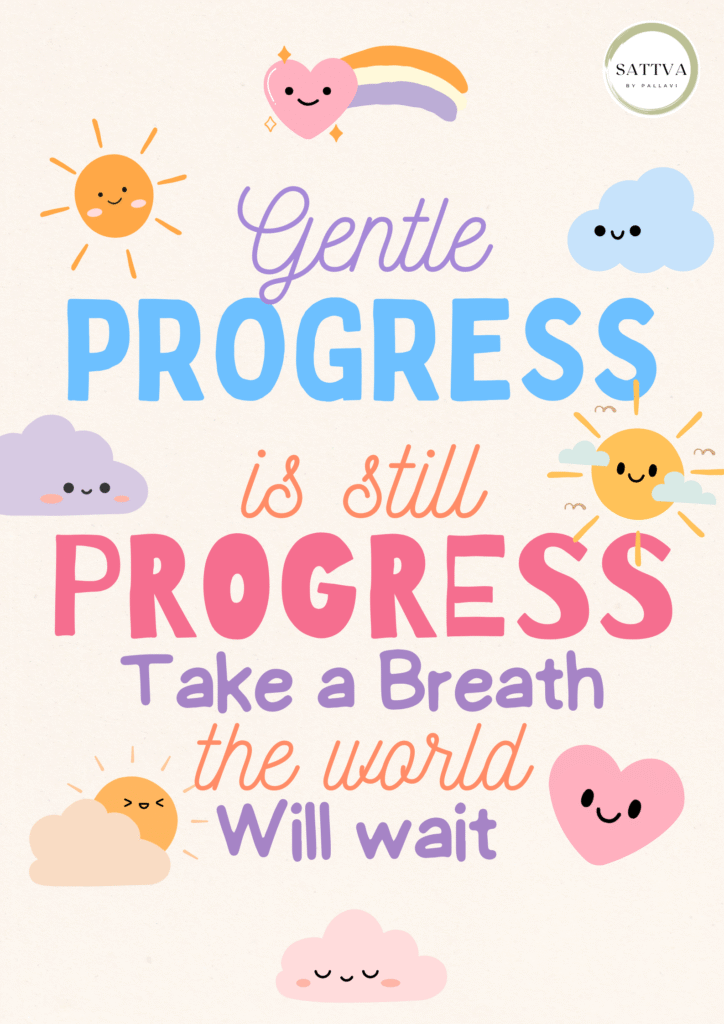
Final Word
Adult ADHD is real, but so are the myths around it. It’s easy to confuse everyday stress with a clinical condition, but with the right awareness, therapy, and support, you can find clarity and confidence.
Remember: labels aren’t the destination, understanding yourself better is.
Credits: Therapist Christymol


